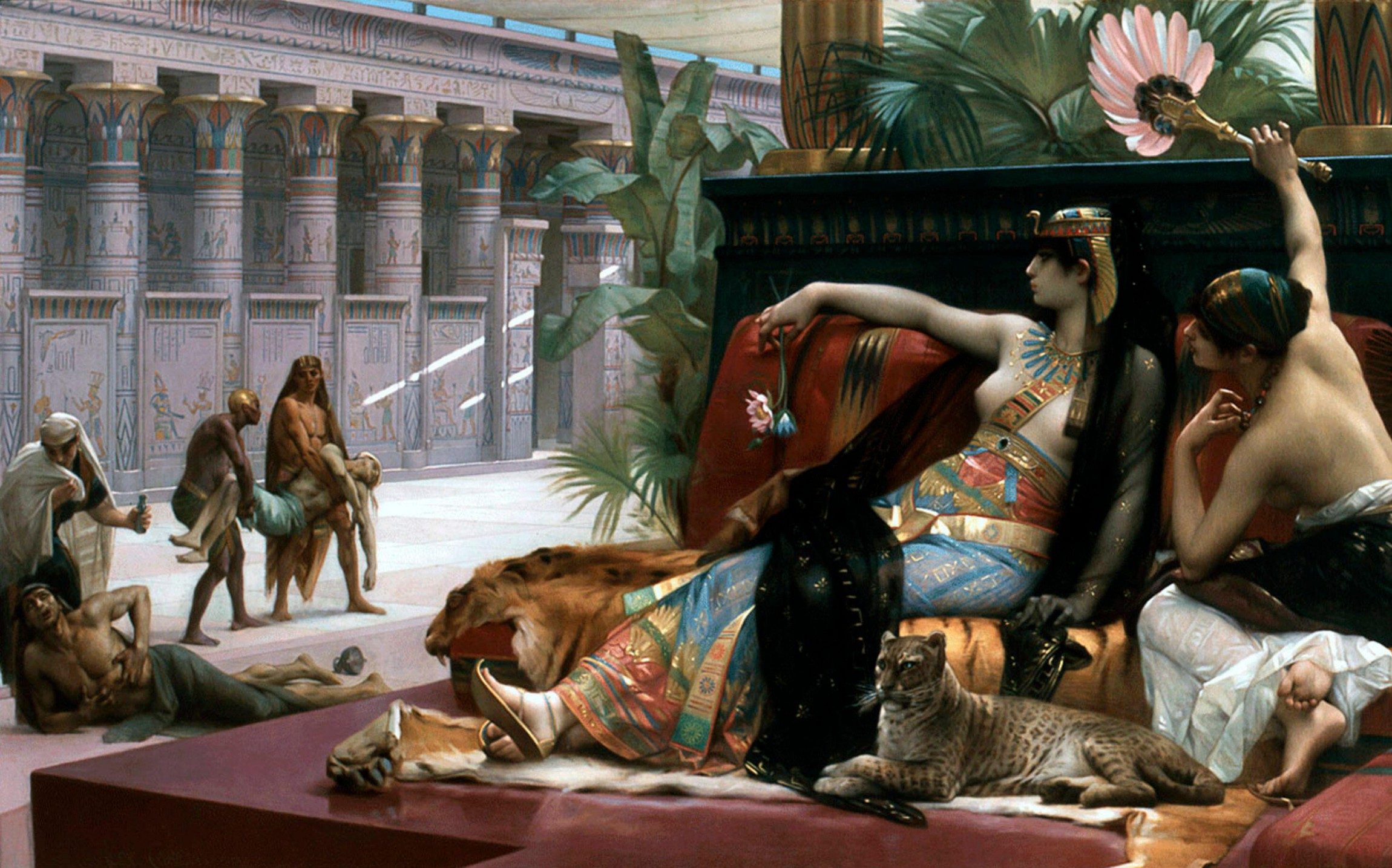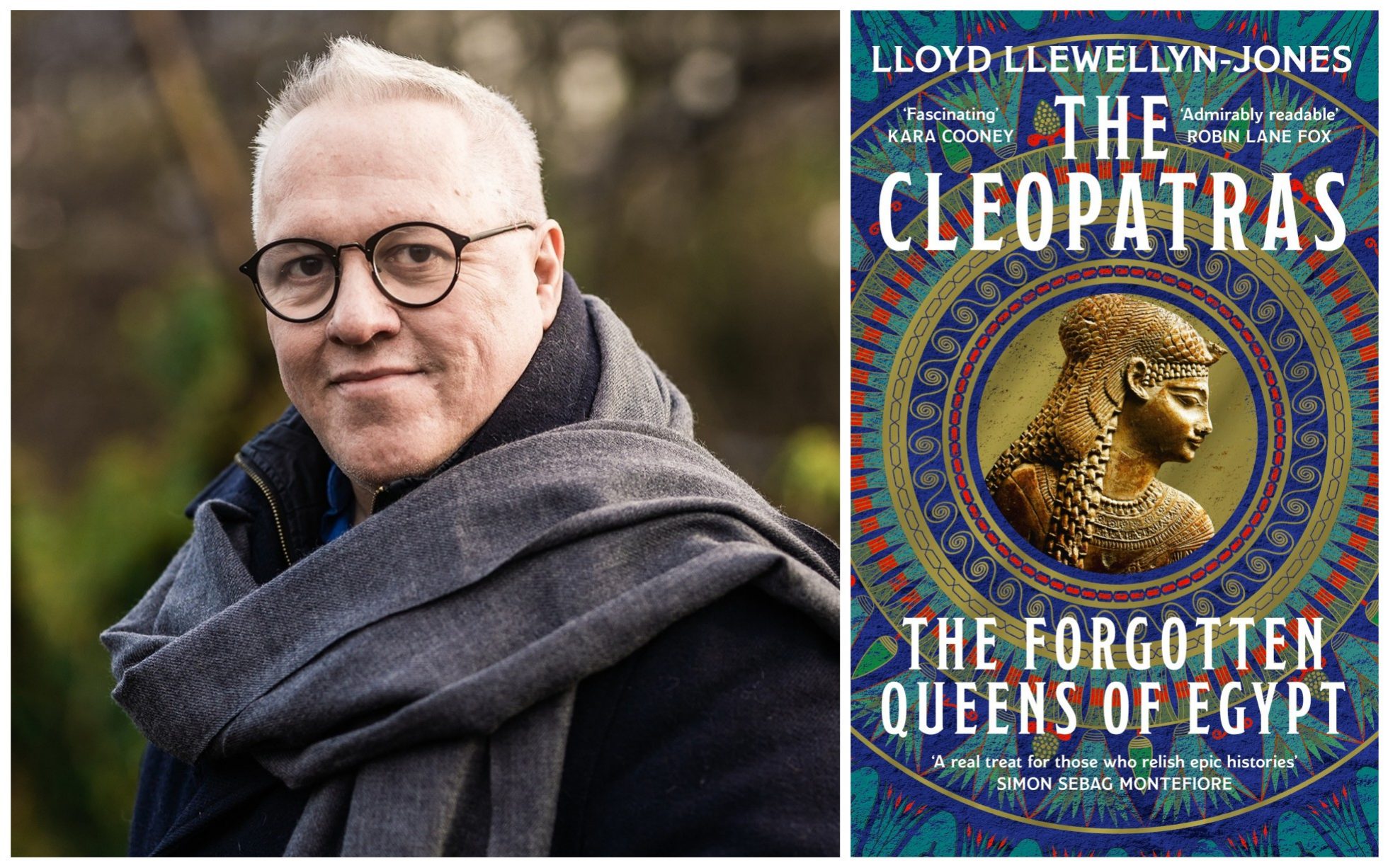How Cleopatra’s bloodsoaked dynasty changed the world

Cleopatra Testing Poisons on Condemned Prisoners (1887) by Alexandre Cabanel
Cleopatra may be the most written-about woman in history, and is certainly the most famous female ruler of any kingdom, ancient or modern. Yet, despite the mythology that attaches to the Queen of the Nile, she was by no means unique, no trailblazer – or such, in short, is the thesis of Lloyd Llewellyn-Jones’s entertaining new book, The Cleopatras.
As Llewellyn-Jones explains in his introduction, “Cleopatra – the Liz Taylor Cleopatra whom we think we know so well – was, in reality, the seventh (and final) Egyptian queen to bear the name.” He sets out to demonstrate just how big a debt she owed, in terms of her self-image, her political strategy and the character of her rule, to her six predecessors. Cleopatras I–VI (along with three further, unnumbered Cleopatras) have long been confined to the footnotes of history, but here they emerge as fascinating figures in their own right: some heroines, some harpies, each with an extraordinary story to tell.
The Cleopatras belonged to two, obsessively inter-married and alarmingly inbred dynasties that ruled much of Alexander the Great’s erstwhile empire in the three centuries after his death (the third to first centuries BC). In Asia, there were the Seleucids; in Egypt, the Ptolemies. The first Cleopatra was a Seleucid princess who married into the Ptolemaic royal house, while her later namesakes were Ptolemaic princesses, some of whom married into the Seleucid dynasty. All 10 Cleopatras were either pawns or players in a merciless game of thrones that saw the two families tear themselves, and each other, apart in the pursuit of hegemonic power.
From the outset, Llewellyn-Jones warns the reader that “the theme of royal incest informs and underpins this entire study”. Indeed: the tortuous family relationships – sisters marrying their brothers, daughters their own fathers, with princesses often passed from one husband to another as individual fortunes waxed and waned – make for a confusing picture. Even with the help of family trees, often with multiple criss-crossing lines, it’s difficult to keep track of all the protagonists. This is compounded by the fact that Hellenistic royal names were chosen from an extremely limited short-list. (Over a period of some 300 years, every royal male in Egypt was named Ptolemy.)
Yet, despite a somewhat breathless succession of births, marriages and deaths, of rulers, battles and dates, what comes across, loud and clear, is that the Cleopatras and their relatives were “[a] group of very flawed and damaged individuals trying to make sense of life in a truly bizarre world”. That puts it mildly. Llewellyn-Jones has a tabloid journalist’s eye for the juicy anecdote and lurid story, and there are plenty of both in this history. To give just one example, Cleopatra III sent her own mother, Cleopatra II, a birthday present of an inlaid casket; when opened, it was found to contain the dismembered body of Cleopatra II’s beloved son (and Cleopatra III’s own half-brother), Ptolemy Memphites. The internecine violence of the Ptolemies and Seleucids makes the Borgias look like the Waltons.

Lloyd Llewellyn-Jones, author of The Cleopatras – Bloomsbury
The caveat to these salacious stories, however entertaining, is that much of what we think we know about the Cleopatras is either supposition or downright fiction, based on the accounts of later, prejudiced, Roman authors. Even when this bias is acknowledged, a heavy reliance on Greek and Latin sources can lead scholars to conclude that the Cleopatras were exceptional: that, in Llewellyn-Jones’s words, “they shattered the rules of what it meant to be a queen”. This was certainly true of Greek civilisation, which was resolutely patriarchal, and of Roman culture, which was downright misogynistic; but it was not so in Egypt.
The key to the success of the Cleopatras lies as much in their geographic context as in their own personalities. It is no coincidence that, uniquely in the Hellenistic world, the idea of a female ruler exercising authority in her own right gained traction in the Nile Valley. Under the pharaohs, royal succession was not always patrilineal, and there are examples of powerful queens from every period of ancient Egyptian history. In the third millennium BC, a woman is known to have governed Egypt as regent for her infant son; in the second millennium, three successive generations of queens ruled while their husbands were away fighting endless wars. Women like Hatshepsut, the first female pharaoh, or Nefertiti, Tutankhamun’s predecessor on the throne, were every bit as consequential as their male counterparts. They paved the way for the Cleopatras.
Though they were of Greek-speaking, Macedonian heritage, the royal women of the Ptolemaic dynasty found themselves in an adopted land where active queenship was not only possible but proven. The Egyptian dimension is the missing link that helps us to understand the Cleopatras and their place in history. Pharaonic civilisation provided a wellspring of ideology, iconography and precedent from which an ambitious female ruler might draw – as the life, death and legend of the great Cleopatra VII show. The Ptolemaic dynasty owed its origins to a Greek general and its demise to a Roman one, but its most remarkable figures were women. And this could only have happened in Egypt.
Toby Wilkinson’s The Last Dynasty: Egypt from Alexander the Great to Cleopatra is forthcoming from Bloomsbury. The Cleopatras: The Forgotten Queens of Egypt is published by Wildfire at £25. To order your copy for £19.99 call 0808 196 6794 or visit Telegraph Books
Play The Telegraph’s brilliant range of Puzzles – and feel brighter every day. Train your brain and boost your mood with PlusWord, the Mini Crossword, the fearsome Killer Sudoku and even the classic Cryptic Crossword.
